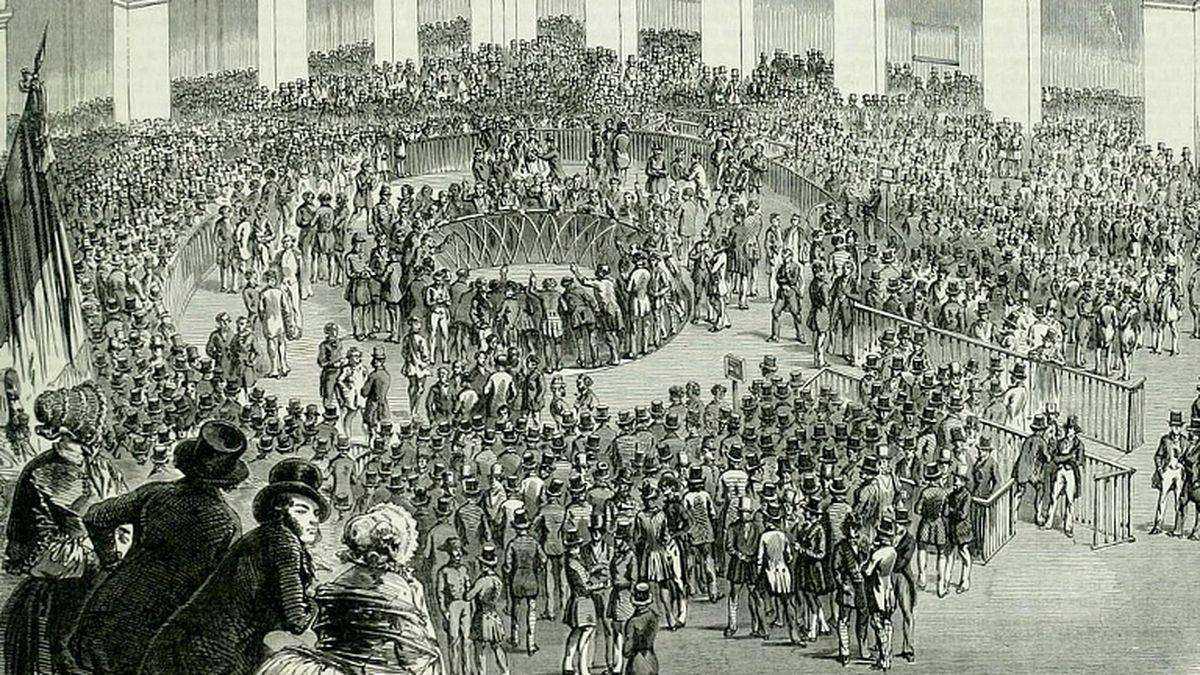 Paris Stock Exchange, L'Illustration, 1840 | ©Internet Archive Book Images / Public domain
Paris Stock Exchange, L'Illustration, 1840 | ©Internet Archive Book Images / Public domainStink-bomb!
March 5th 1886. Place de la Bourse. 3:15 PM. It was a cold afternoon.
The crowd of regular small investors overran inside the Stock Exchange.
At that moment, a guy turned up and weaved through the crowd, silently, among the coats rustle...
A furtive silhouette who suddenly threw away a little phial full of prussic acid in the palace’s galleries!
It broke. A smoke, then a horrible stinking smell... that was all.
The guy stiffened, perplexed: his stink-bomb failed!
So he drew a gun from his pocket and shot around him in the hall. Bang bang bang!
The weapon spit 3 bullets, but no one was hurt. He had no more munitions, so the cops collared him easily.
A nervous Breton
The period papers described him: he was Charles Gallo, a Breton born in Le Palais, Morbihan (Brittany).
He was 28 years old, dark-haired, skinny and frightening. His face twitched nervously, and he had a bad pulmonary illness.
Former clerk, he was a chemist in his spare time, so he was able to make his own bomb (yes, you know, this stinking stuff he used for the attack).
Gallo was an anarchist who wanted to "kill as many small investors as possible in the Stock Exchange".
"To kill all those vile rascals who speculated on the public poverty", according his own words.
"Unfortunately, I didn’t kill anybody", he said during his trial.
Hard labour
Aaah, his trial! What was the sentence? 20 years of hard labour.
But the person concerned didn’t care: he left the courthouse yelling "Long live the anarchy! Three cheers for the dynamite!"
Gallo drew attention to himself, one more time, in his penal colony in New Caledonia: there, he attacked a guard with a shovel blow on the head.
The riposte? The guard shot at his face!
The two men were safe, but Gallo was condemned to the death penalty.
A penalty commuted to life hard labour. Well, Gallo, who was but a shadow of his former self, died in the colony in 1923...
